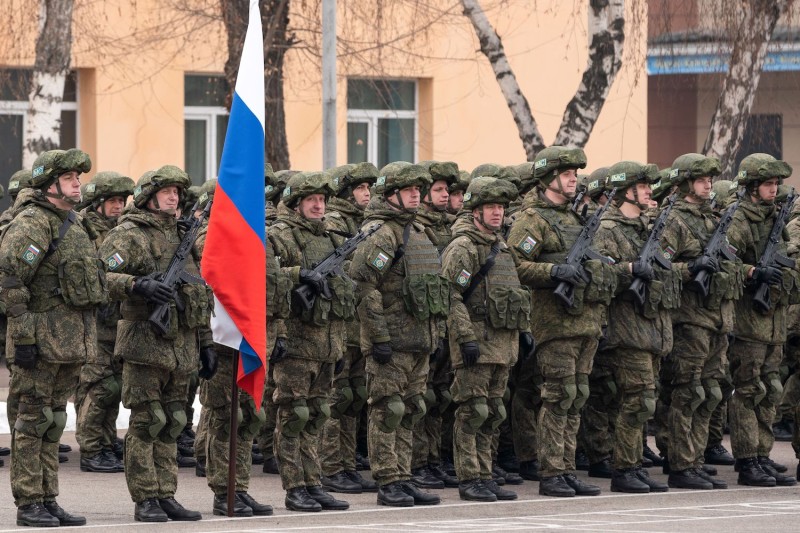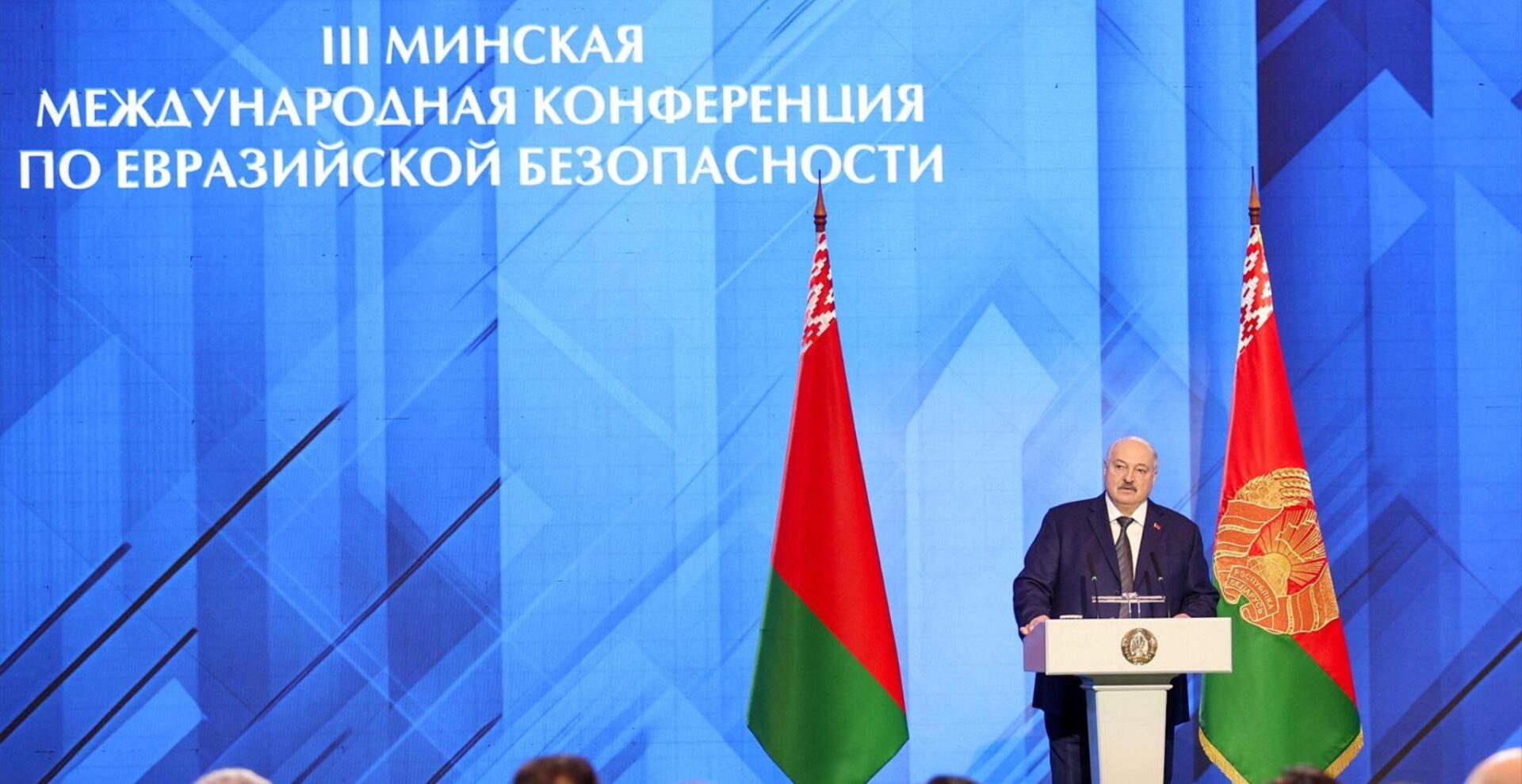
Russian-Led Mission in Kazakhstan Unveils New Peacekeeping Model (Part Two)
Russian-Led Mission in Kazakhstan Unveils New Peacekeeping Model (Part Two)
Russia’s peacekeeping intervention with four minor allies in Kazakhstan (January 6 through January 19—see Part One in EDM, January 19, 2022) brings to six the number of Russian operations labeled as “peacekeeping” in Russia’s claimed sphere of influence from 1992 to date.
Compared with the previous cases (Tajikistan, Abkhazia, South Ossetia, Transnistria, Karabakh), however, the operation in Kazakhstan amounts to a “first” in many ways.
This is Russia’s first-ever peacekeeping mission at the head of a multinational force. Russia’s previous operations in its claimed sphere were undertaken unilaterally, lacking a coalition character. In Kazakhstan, however, Russia has for the first time used the Collective Security Treaty Organization (CSTO) in a military operation. The CSTO’s member states (Russia, Belarus, Armenia, Kazakhstan, Kyrgyzstan, Tajikistan) may, under the CSTO Charter, undertake collective peacekeeping operations on member states’ territories.
It is, also, the CSTO’s first real-world operation (as distinct from exercises) since the organization’s founding in 2002 and the creation of the CSTO’s collective peacekeeping forces in 2012 (see EDM, January 19, 2022). The militaries of CSTO member countries include units trained for peacekeeping operations. The Russian army’s 15th Motorized Rifle Brigade is dedicated to peacekeeping missions (part of that brigade is currently deployed to Karabakh). The CSTO itself includes a multinational Peacekeeping Force component of 3,600 troops within the organization’s structure. Nevertheless, the national contingents involved in the mission in Kazakhstan drew, for the most part, on military units not trained for peacekeeping operations (see Part One).
The multinational composition, moreover, translates into tokenism in this case. The small non-Russian contingents may not have been redundant, but they depended overwhelmingly on Russia for every aspect of the mission.
The existence of a legal basis for this mission is one more “first” in the history of Russia‘s peacekeeping operations. Kazakhstani President Kassym-Jomart Tokayev’s invitation provided unassailable legal grounds for Russia to initiate and lead this mission. To make its case (and Kazakhstan’s) airtight, Russia ended the mission and evacuated its own and allied troops from the country promptly upon Tokayev’s request. In this light, invoking the CSTO Charter to legitimize this mission is a redundant argument.
Nevertheless, Russia (as coalition leader) and Kazakhstan (as the inviting state) have cited the CSTO Charter for another legal justification of this mission. Under the Charter’s Article 4, “In the event that an aggression (armed attack threatening the security, stability, territorial integrity and sovereignty) takes place against any of the [charter’s] state-parties, all the other state-parties shall, at the request of that state-party, immediately provide it with the necessary aid, including military” (Odkb-csto.org, accessed January 19, 2022).
According to Kazakhstan’s Foreign Minister Mukhtar Tleuberdi, speaking to European media, there were other countries that offered military assistance to Kazakhstan during this crisis, “but we did not have a legal basis for accepting troops from countries or organizations other than the CSTO” (EurActiv, January 19, 2022). This argument is unnecessary (see above) and unfounded. The CSTO Charter could not by itself have provided this mission with a valid basis in terms of international law, inasmuch as the CSTO itself lacks both international legal standing and mandate-conferring powers.
The operation in Kazakhstan is the first-ever undertaken by Russia in another country in the name of combating “terrorism.” Russia embraced Kazakhstan’s arguments on this matter. Kazakhstani authorities have characterized the mass-scale, violent disorders that had suddenly erupted in their country as manifestations of terrorism, both foreign-inspired and drawing on local forces (see EDM, January 20). The authorities have described the army’s and security services’ efforts to restore order as an “anti-terrorism operation.” President Tokayev and other Kazakhstani officials made heavy use of terrorism imagery to justify the Russian-led intervention in support of Kazakhstan’s forces and during the course of that operation. Alluding to terrorism’s external support, they inferred that Kazakhstan faced “foreign aggression,” thus strengthening their case for a Russian/CSTO assistance mission (Gov.kz, January 5, 6; Twitter.com/TokayevKZ, January 7, 8; TASS, January 10, 12, 13, 19). Russian President Vladimir Putin, his government and the controlled mass media amply echoed Kazakhstan’s anti-terrorism rhetoric to justify the Russian-led intervention.
In yet another “first,” Russia affixed the peacekeeping label on a mission to restore public order in the midst of a situation of chaos bordering on anarchy. The label “stabilization operation” might better fit Russia’s intervention and the actions of the troops deployed to Kazakhstan (see Part One). This operation was also comparable to a police operation in terms of its purpose—namely, protection of assets and restoration of order. Unlike police operations in comparable situations elsewhere, however, the Russian-led mission’s rules of engagement allowed little scope for the use of lethal force.
Russia’s previous “peacekeeping” operations (see above) were typically designed to carve out Russian occupation zones and protectorates from other countries’ territories. Manipulating inter-ethnic conflicts, Russia deployed its troops as interposition forces or for “coercion to peace.” None of those operations involved counter-terrorism or restoration of public order among their declared objectives. The operation in Kazakhstan shows that Russia (as well as the receiving party) can use elastic definitions of what constitutes “peacekeeping.” It is Russia that wields the decisive powers of definition; and it can creatively expand that definition in future “peacekeeping” operations as needed.
The intervention in Kazakhstan also shows that Russia continues to enjoy a monopoly on peacekeeping operations in the post-imperial Russian/post-Soviet domain. Although Western powers never recognized that privilege, they have not contested it either and have, in some cases, gone along with it. This de facto monopoly constitutes a building block to a Russian sphere of influence in Eurasia.


